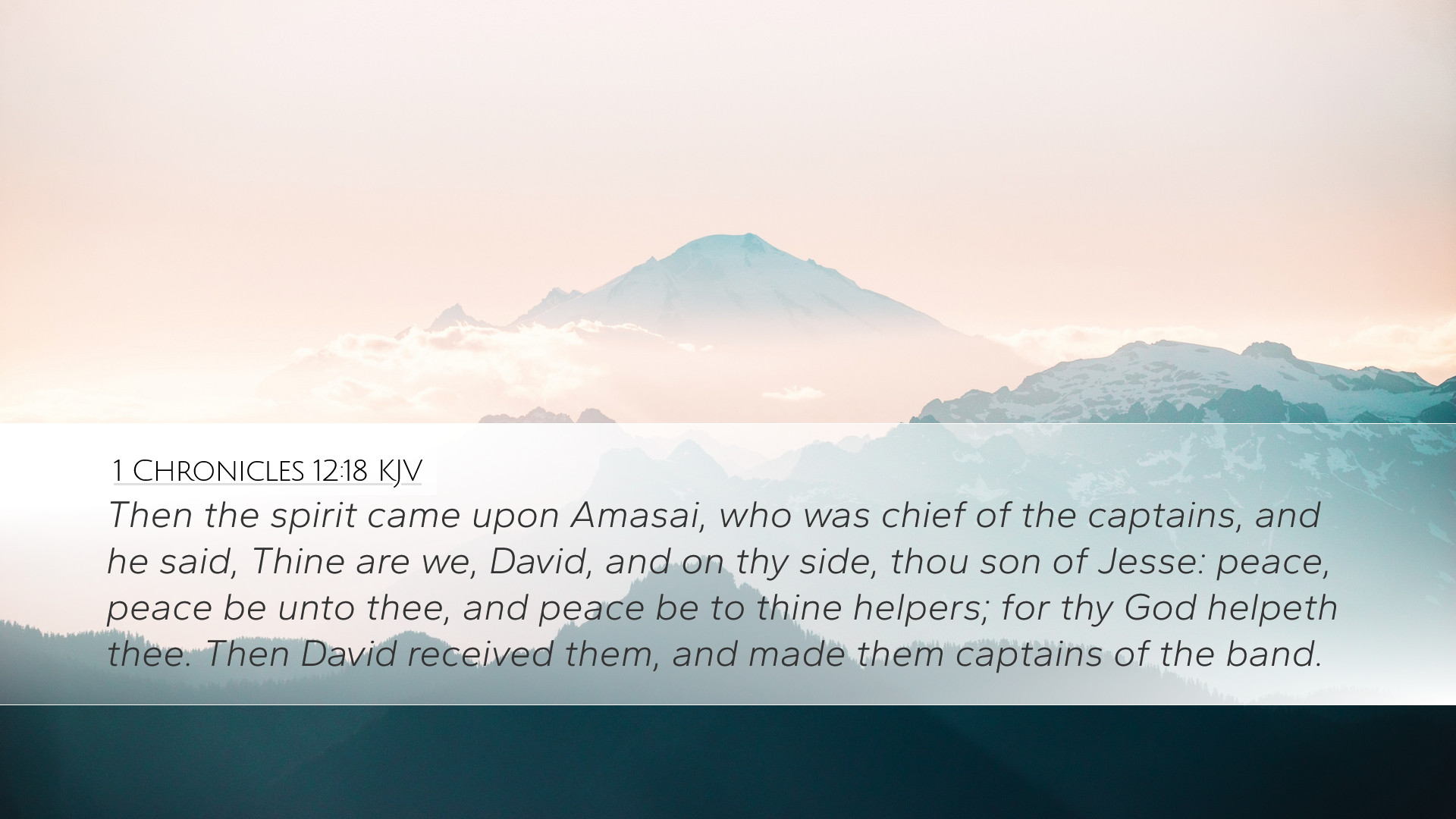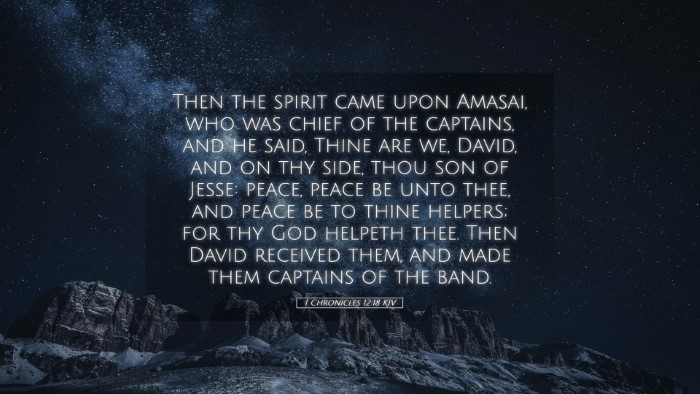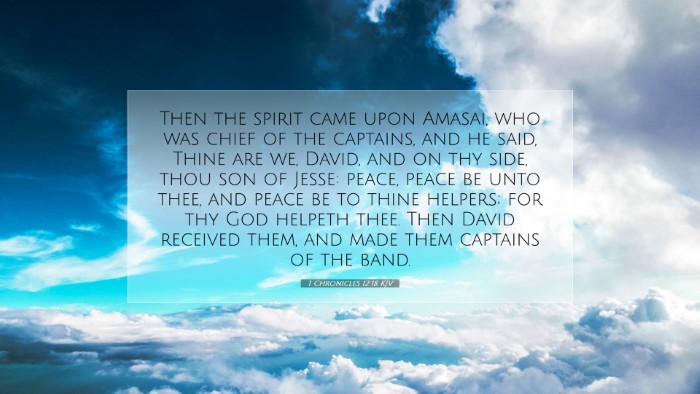Commentary on 1 Chronicles 12:18
Verse Reference: 1 Chronicles 12:18 - "Then the Spirit came upon Amasai, who was chief of the captains, and he said: 'We are yours, O David; we are on your side, you son of Jesse! Peace! Peace to you, and peace to your helpers! For your God helps you.' So David received them and made them captains of the troop."
Introduction
This verse captures a pivotal moment in the narrative of David's rise to kingship. The arrival of the warriors from the tribe of Benjamin is significant not only for its immediate military implications but also for the spiritual and communal dynamics it engenders. Amasai’s proclamation, fueled by the Spirit of God, marks a turning point in David’s acknowledgment as the rightful king of Israel.
Spiritual Influence and Divine Empowerment
Examination of the Spirit's Role:
-
Matthew Henry notes that the phrase "the Spirit came upon Amasai" indicates a divine empowerment that enabled him to speak boldly and proclaim his loyalty to David. This reflects the biblical principle that God often equips His chosen leaders with the speech and courage necessary for their roles.
-
Albert Barnes emphasizes that the presence of the Spirit signifies divine approval and guidance. The prophetic nature of Amasai’s declaration implies that recognition of legitimate leadership is a matter of spiritual discernment.
-
Adam Clarke adds depth by highlighting that Amasai's actions represent a broader theme in Scripture where the Spirit moves individuals to support God's chosen leaders, illustrating the unity that exists among the faithful under divine guidance.
Allegiance and Loyalty
The Significance of Amasai's Declaration:
-
In declaring, "We are yours, O David," Amasai expresses a remarkable allegiance that is critical in establishing a coalition around David. Such declarations were not mere political maneuvers but were grounded in covenant loyalty and faithfulness.
-
Henry affirms that this loyalty signifies a turning point for David, solidifying his support amongst key tribal leaders. It is a recognition of David’s divinely appointed role as king.
-
Barnes further points out that the declaration serves as an encouragement both to David and his followers, instilling a sense of communal purpose and identity within the ranks.
Peace and Support
The Nature of Peace in Leadership:
-
Amasai's blessing of "Peace! Peace to you" signals an essential aspect of the kingdom's foundation. As Clarke notes, true leadership is characterized by bringing peace and harmony, both with God and among the people.
-
Henry elaborates that this peace is not merely the absence of conflict but entails a profound sense of welfare and flourishing that David’s reign is expected to bring, rooted in divine support.
-
Barnes suggests that such an invocation of peace implies a mutual commitment to loyalty and support during David's reign, reinforcing the community's dedication to God’s plan through David.
Theological Implications
The dynamics of this verse foreshadow deeper theological truths concerning God’s sovereignty and the establishment of leadership among His people. Through the empowerment of Amasai by the Spirit, we are reminded of the divine providence that underlies God’s choice of leaders throughout history.
Divine Sovereignty
As seen in the calling of David, God orchestrates events to fulfill His plans. This verse illustrates the principle that earthly leadership is subject to divine endorsement and requires faithful obedience to God’s will.
Implications for the Church
For modern-day believers and church leaders, the themes of loyalty, support for divinely appointed leaders, and the quest for peace remain vital. A commitment to pray for and uphold spiritual leaders reflects the continuity of faith depicted in this passage.
Concluding Reflections
The narrative of 1 Chronicles 12:18 encapsulates the essential elements of divine support, community endorsement, and the pursuit of peace that are foundational to any successful leadership model within a biblical context. As we interpret this verse, we find timeless principles relevant not only for its original audience but also for contemporary faith communities. The call to recognize divine leadership, uphold one another in unity, and pursue peace resonates deeply in our present context.


